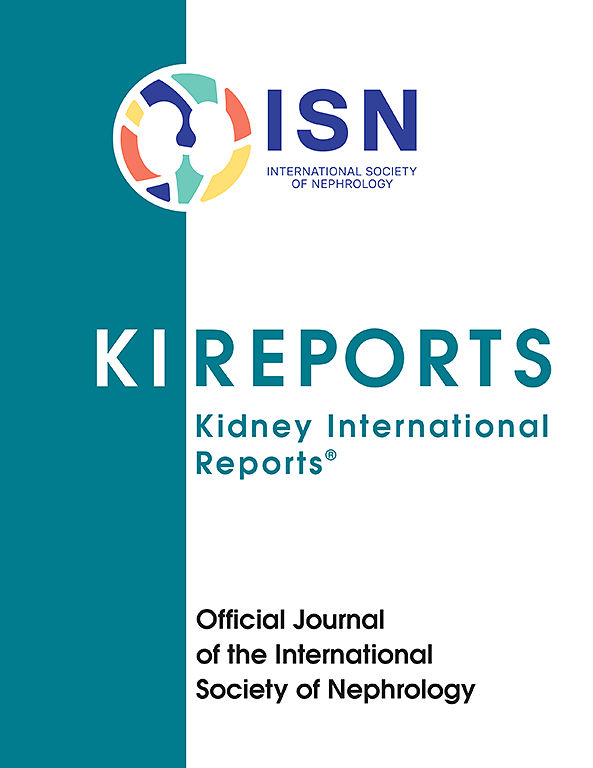原发性和肠源性高草酸尿症在临床与实验室之间的机遇
IF 5.7
2区 医学
Q1 UROLOGY & NEPHROLOGY
引用次数: 0
摘要
高草酸盐尿症是指由于肝脏过度分泌草酸盐(原发性高草酸盐尿症 [PH])或饮食中的草酸盐被肠道吸收过多(肠源性高草酸盐尿症 [EH]),导致尿液中出现病理性的大量草酸盐。其严重程度各不相同,最严重的形式会导致肾衰竭和肾外表现。为了应对高草酸尿症目前面临的挑战和创新,第 14 届国际高草酸尿症研讨会在意大利佩鲁贾召开,国际专家汇聚一堂,进行了重点发言和讨论。以下报告的目的是概述会议情况,并为进一步思考提供基础。本文按照会议的形式,首先讨论 "PH 1 型"(PH1),然后讨论 "PH 的外科、遗传学和伦理学",接着讨论 "PH 2 型和 PH 3 型"(PH2 和 PH3),最后讨论 "EH"。每场会议首先介绍了当前的临床挑战,随后讨论了基础研究和转化研究的最新进展,最后就该领域未来研究的优先次序进行了互动式讨论,以便更好地满足患者的需求。本文章由计算机程序翻译,如有差异,请以英文原文为准。
Opportunities in Primary and Enteric Hyperoxaluria at the Cross-Roads Between the Clinic and Laboratory
Hyperoxaluria is a condition in which there is a pathologic abundance of oxalate in the urine through either hepatic overproduction (primary hyperoxaluria [PH]) or excessive enteric absorption of dietary oxalate (enteric hyperoxaluria [EH]). Severity can vary with the most severe forms causing kidney failure and extrarenal manifestations. To address the current challenges and innovations in hyperoxaluria, the 14th International Hyperoxaluria Workshop convened in Perugia, Italy, bringing together international experts for focused presentation and discussion. The objective of the following report was to disseminate an overview of the proceedings and provide substrate for further thought. The format of this paper follows the format of the meeting, addressing, “PH type 1” (PH1) first, followed by “surgery, genetics, and ethics in PH”, then “PH types 2 and 3,” (PH2 and PH3) and, finally, “EH.” Each session began with presentations of the current clinical challenges, followed by discussion of the latest advances in basic and translational research, and concluded with interactive discussions about prioritizing the future of research in the field to best serve the need of the patients.
求助全文
通过发布文献求助,成功后即可免费获取论文全文。
去求助
来源期刊

Kidney International Reports
Medicine-Nephrology
CiteScore
7.70
自引率
3.30%
发文量
1578
审稿时长
8 weeks
期刊介绍:
Kidney International Reports, an official journal of the International Society of Nephrology, is a peer-reviewed, open access journal devoted to the publication of leading research and developments related to kidney disease. With the primary aim of contributing to improved care of patients with kidney disease, the journal will publish original clinical and select translational articles and educational content related to the pathogenesis, evaluation and management of acute and chronic kidney disease, end stage renal disease (including transplantation), acid-base, fluid and electrolyte disturbances and hypertension. Of particular interest are submissions related to clinical trials, epidemiology, systematic reviews (including meta-analyses) and outcomes research. The journal will also provide a platform for wider dissemination of national and regional guidelines as well as consensus meeting reports.
 求助内容:
求助内容: 应助结果提醒方式:
应助结果提醒方式:


